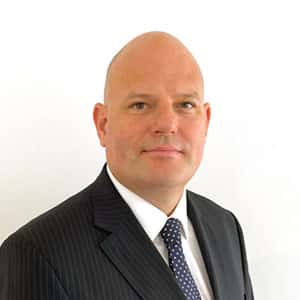Getting people to confront their mortality and create an estate plan, which at the very least should include a Will and Enduring Power of Attorney is often challenging. Many clients feel daunted by the process and either procrastinate about making a plan, do not see it as a priority or there can be legitimate difficult decisions to be made about who gets what and this can get more complicated where mixed families are involved with stepchildren and stepparents.
Other factors that can muddy the waters of clear decision making exist where there are beneficiaries with certain difficult characteristics to consider. These can be wide ranging but may include substance dependencies, mental or other health issues, spendthrifts, those caught up in bad relationships, bankrupts (or likely bankrupts) and the simplest of all children and young adults who are simply too young or immature to have immediate access to a large inheritance.
Think what is at stake
Few people add up all their investments, life insurance and superannuation. When they do, they are often surprised at what their whole estate is worth. A good catalyst for action is to think, if we do absolutely nothing about estate planning what are our kids going to inherit and how old will they likely be? I recently undertook this exercise for a client and the question was, your estate including your superannuation and life insurance is valued at $4m how do you feel about your two children inheriting $2m each at ages 21 and 23 if something were to happen to you?
No matter how responsible you think your children or other intended beneficiaries are this may not prevent them from entering a bad relationship, going into debt themselves or simply making a poor investment decision all of which could result in a loss of wealth for them which you have spent a lifetime building up.
Another unintended consequence of poor estate planning can be tax. Tax on capital gains from investments that need to be sold may be prematurely realised as well as payments from superannuation to non-financial dependents, which includes adult children. So proper estate planning should not just consider the splitting of your estate but also the most efficient distribution of specific assets.
Doing nothing
Not having an estate plan means assets may go to the wrong people. If you die intestate (without a Will) it can become a free for all. There is a saying for dying intestate ‘The nice people miss you and the bad people go for the money’.
The other consequence of inaction is what sort of experience are you going to leave for your loved ones? An estate plan should not be just the consideration of facing mortality, more importantly ask yourself the question, what kind of experience do you want your loved ones to have when it comes time to distribute your estate and how can I make this as easy as possible for them?
Doing something
Having an estate plan is not about going straight into drafting documents with lawyers. The first things to do is to think about what is important for you, what your intended beneficiaries need as well as any vulnerable characteristics.
Only after this process has been undertaken should the drafting process commence. What the objectives are will determine what plans need to be made. Common documentation may include the following:
Will
Your Will is a legal document that directs how your estate assets are to be distributed amongst your nominated beneficiaries. You are required to nominate an Executor in your Will. The Executor has the duty of carrying out your wishes in your Will and is granted power to administer the estate. Important consideration should be given as to who you appoint as your Executor.
Enduring Power of Attorney
An enduring power of attorney is a legal agreement that enables a person to appoint a trusted person – or people – to make financial and property decisions on their behalf. An enduring power of attorney is an agreement made by choice that can be executed by anyone over the age of 18, who has full legal capacity.
The benefit of an enduring power of attorney is that unlike an ordinary power of attorney, the power granted is only enacted if you are mentally unable to administer your own financial affairs.
An enduring power of attorney does not usually permit an attorney to make personal and lifestyle decisions, including decisions about medical treatment. The authority of the attorney is limited to decisions about the donor’s property and financial affairs. However, these areas may be included in an Enduring Power of Attorney if requested.
Testamentary Trust
A standard Will is the very minimum everyone should have. Provision for a Testamentary Trust can be made in a Will and specifies what assets are transferred to the trust. The trust can be used to hold and protect assets such as heirlooms, but the prime benefit of this structure is for the care and protection of assets for beneficiaries who are too young or have other issues as mentioned.
A further benefit of a testamentary trust is income distributed for the care of children may be taxed at adult marginal tax rates rather than the more restrictive tax rate applied to children which is 66% of any income over $416.
Advanced Healthcare Directive
An Advanced Healthcare Directive or Advanced Care Plan is another way of recording what decisions you would like to be made about your future health care. These plans only come into effect once you lose legal capacity to make decisions about your wishes and choices about medical treatment. This is important as ahead of time prior to ill-health, or a further deterioration in health, you can make it clear to family, friends and doctors your preferences concerning medical treatment including cessation of treatment such as life support.
How Killara Wealth Can Help?
I regularly assist clients with their Estate Planning in particular structuring of asset distributions from the estate. I also work with specialist Estate Planning lawyers and can arrange for Will, Powers of Attorney and other documents to be drafted then executed by you by working with either your existing lawyer or through referral to one of my preferred providers. Contact us today for more information.









